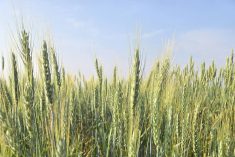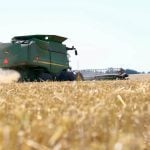Everybody who cares about how beef cattle are raised can give their input through an online questionnaire in coming weeks.
The survey is designed to gauge people’s understanding of the new beef cattle code of practice that the industry is now developing, said Ryder Lee, manager of federal and provincial relations with the Canadian Cattlemen’s Association.
“I guess I poke producers the most because it’s their code and hearing from them is important. It’s one of those things where you get out what you put in,” Lee said.
Read Also

University of Saskatchewan launches Introductory Agriculture certificate program
A new University of Saskatchewan program is aimed at students or professionals looking for a base of Prairie agricultural knowledge.
“It’s a function of the times we’re in, that we’ve got this ability to ‘ask the audience.’ “
The process to revise the beef cattle code of practice began in November 2010, and it is expected to be complete by April 2013. The new code will replace the one that was developed in 1991.
This code of practice, and others being developed for dairy, horses, pigs, sheep and poultry, are guidelines for the care and handling of farm animals. They are used to educate producers and the public on acceptable management and welfare practices.
Jackie Wepruk, general manager for the National Farm Animal Care Council, said the April 2013 target date remains in place as committee work proceeds.
The group working on the beef code includes producers, veterinarians, scientists and representatives from humane societies, restaurant and food services industries and federal and provincial governments, Wepruk said.
Input from producers is important to the process, she added.
“We want to ensure that producers are aware that the code is being updated and also able to provide their input into what’s important to them when it comes to the care and handling of their animals.”
The first survey has general questions about the code, while a second one will be more specific about animal husbandry.
Lee said it will ask producers about their animal handling practices for such things as dehorning and castration.
A public comment period is also planned once the beef cattle code is drafted, Lee added.
The survey can be found at www.nfacc.ca/codes-of-practice/beef-cattle.















